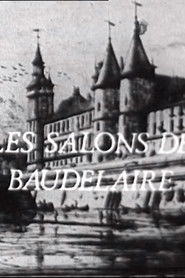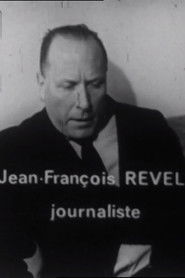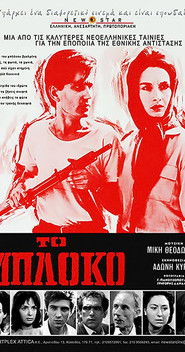Jean-Paul Török
DirectorWriter
-
Birthday
-
Zodiac Sign
-
Genres
0
Total Films
Also known as (female)
Place of Birth
-
Birthday
-
Zodiac Sign
-
Genres
0
Total Films
-
Also Known As (female)
-
Place of Birth
-
Birthday
-
Zodiac Sign
-
Genres
0
Total Films
Also known as (female)
Place of Birth
-
Birthday
-
Zodiac Sign
-
Genres
0
Total Films
-
Also Known As (female)
-
Place of Birth
actor
0 Works
producer
0 Works
director
10 Works
writer
5 Works
other
2 Works

A Bad Son
Bruno is released from prison. He looks for a job and tries to start a new life. His first stop is at his father's apartment.Year:
1980
Celui qui venait d'ailleurs
A mysterious individual, silent and taciturn, appears one evening in a Breton inn and arouses curiosity before provoking hatred, fear and, finally, his own death. The film was screened for the 1972 Directors' Fortnight, at the Cannes Festival.Year:
1972

Les salons de Baudelaire
Long panoramic shots and tracking shots in the Louvre Museum, the Hôtel de Lauzun or the Petit Palais allow us to discover the works of Delacroix, Horace Vernet, David, Ingres, Courbet, Manet, etc. An actor reads excerpts from Baudelaire's Salons where he expresses admiration or detestation. (source: Canopé)Year:
1970

Qu’est-ce que la mise en scène - Jean-Luc Godard
Year:
1969

Le mot et l'image
This program is presented as a report on the way the weekly Paris Match deals with information through images. Two of the newspaper's main managers explain what their job is. As a counterpoint to these interviews with image professionals, the philosopher and essayist Jean-François Revel recalls his attachment to marking the limits of information through images (source: Média Scérén)Year:
1968
André Breton (1896-1966) : Je cherche l'or du temps
Evocation of André Breton's role in the surrealist movement, on images of landscapes, Paris, surrealist paintings, faces of young girls and ruins of castles. The main themes addressed: poetry, love, freedom. (source: Media-Scéren)Year:
1968
Idoles et chanteurs I : La chanson, un métier
Investigation in 1967 on the profession of variety singer through the testimonies of Michel Fugain whom we follow during a studio recording, of Lucien Morisse artistic director in a record company, of the lyricist and musical arranger of Michel Fugain (Jean Morlier), of the disc-jockey Mini Max. They analyze the keys to success, their respective roles, the evolution of French song in relation to Anglo-Saxon music (source: Média Scérén).Year:
1967
Idoles et chanteurs II : La chanson, un métier
Investigation in 1967 on the profession of variety singer. Round table with young singers little known at the time, including Michel Fugain: his hopes and the difficulties of a young singer. They give their opinion on the programmers. Two programmers, Jean Peigné and Lucien Morisse, give their criteria for selecting records. Eddy Mitchell discusses the phenomenon of stardom and the keys to success (source: Média Scérén).Year:
1967
William Hogarth
According to Bernard Cohn's review, the directors "show that the painter of British society at the beginning of the 18th century was not only ahead of his time in his aesthetic theories, but that he carried within him the signs that allow us to recognize a creator." (Positif, no. 70, June 1965, p. 73.)Year:
1965

The Roundup
One of filmmaker and expatriate writer Adonis Kyrou's best-known quotes translates roughly as "I urge you: Learn to look at 'bad' films, they are so often sublime." The same could be said of Kyrou's own directorial work in Greece before the advent of the 1967 dictatorship forced him to flee to Paris. This confused mess, the first cinematic attempt at portraying the Greek resistance in WWII, caused quite a stink upon release, as much for its surprising style (recalling that of Bertolt Brecht) as for its subject matter. Reaction to its screening as part of the 1966 Cannes Film Festival's International Critic's Week was heated and divisive, proving Kyrou's later statement by rising above its own inherent silliness to achieve a sort of rarefied critical status. It's bad drama that nonetheless succeeds by dint of audacity more than quality (a comment which could apply equally to the work of many exploitation directors like Jean Rollin whom Kyrou later so lovingly profiled).Year:
1965